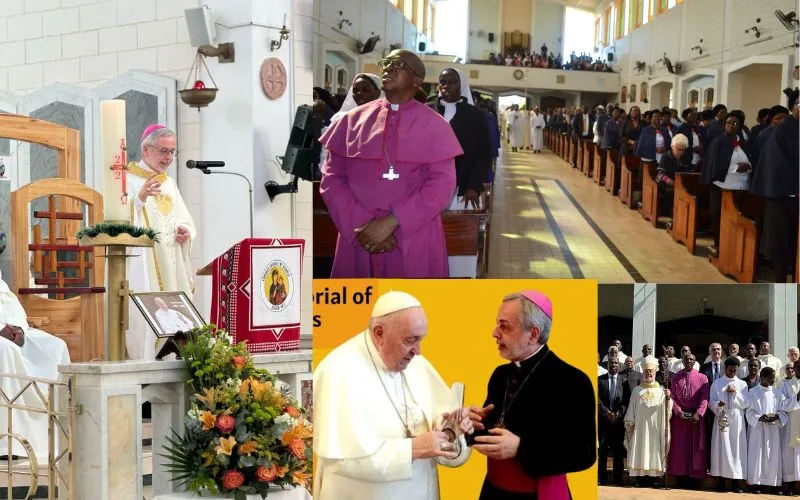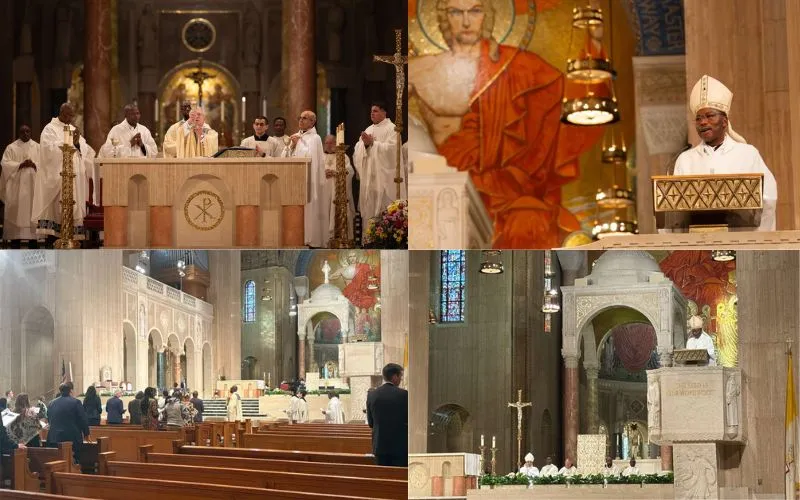Jos, 02 May, 2025 / 10:32 pm (ACI Africa).
Bishop José Luís Gerardo Ponce de León of the Catholic Diocese of Manzini in the Kingdom of Eswatini has eulogized the late Pope Francis as one who was close to the suffering, including migrants and refugees, and exemplified the spirit of the Good Samaritan recounted in Luke’s Gospel.
In his homily during the memorial Mass for the late Pontiff, who was laid to rest on April 26, Bishop José used the parable of the Good Samaritan narrative to explain how the late Pope Francis had an impact on the suffering across the globe.
“Looking back at his 12 years as Bishop of Rome, I tend to think that Pope Francis was inspired by the parable of the Good Samaritan and made himself a Good Samaritan,” he said during the Wednesday, April 30 Memorial Mass.
Bishop José recalled the late Pontiff’s symbolic gestures that illustrated his closeness to the suffering, including the April 2019 kissing of the feet of South Sudanese political leaders, his solidarity with migrants and refugees, and the repeated calls he made to Fr. Gabriel Romanelli, the Parish Priest of Holy Family Parish in Gaza.
“Through each one of these actions and many others, he opened our eyes to the sufferings of those beaten up by life: migrants, prisoners, divided nations, war-torn countries,” the Argentinian member of the Institute of the Consolata Missionaries (IMC) said about his late compatriot.





